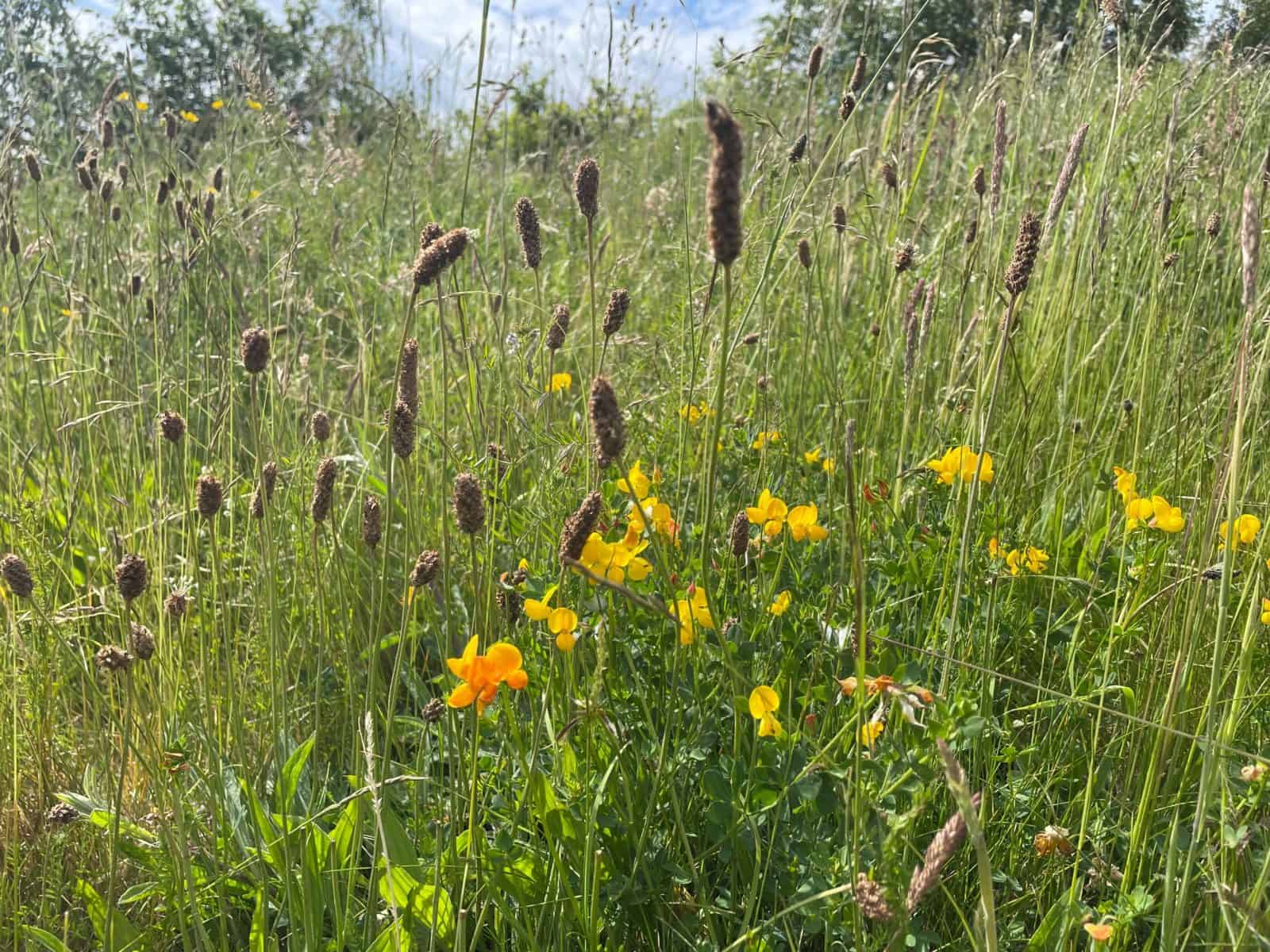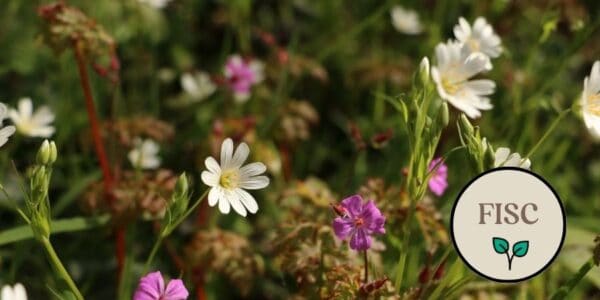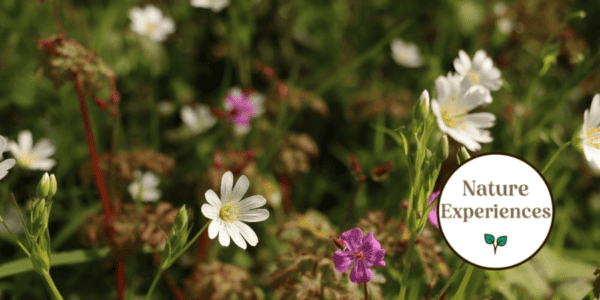This beginner-level course on botany will introduce you to the key features of flowering plants and will guide you through using these to identify wildflowers.
As you become familiar with the features of plants from a range of different species, your confidence and ability to use field guides and identification keys will grow.
This course will cover:
- A basic overview of the evolution of flowering plants, and how they fit in the plant kingdom
- The vegetative and reproductive parts of plants (roots, stems, leaves, flowers, fruits and seeds)
- Using the vegetative and reproductive features of plants in identification
- Common species of grassland, hedgerow and wayside
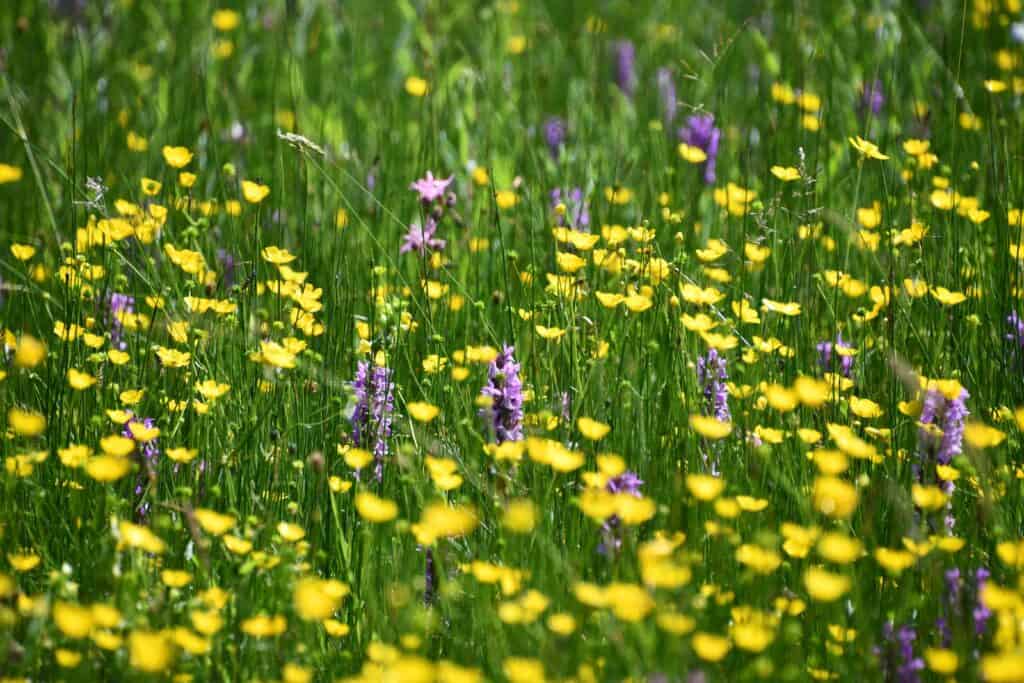
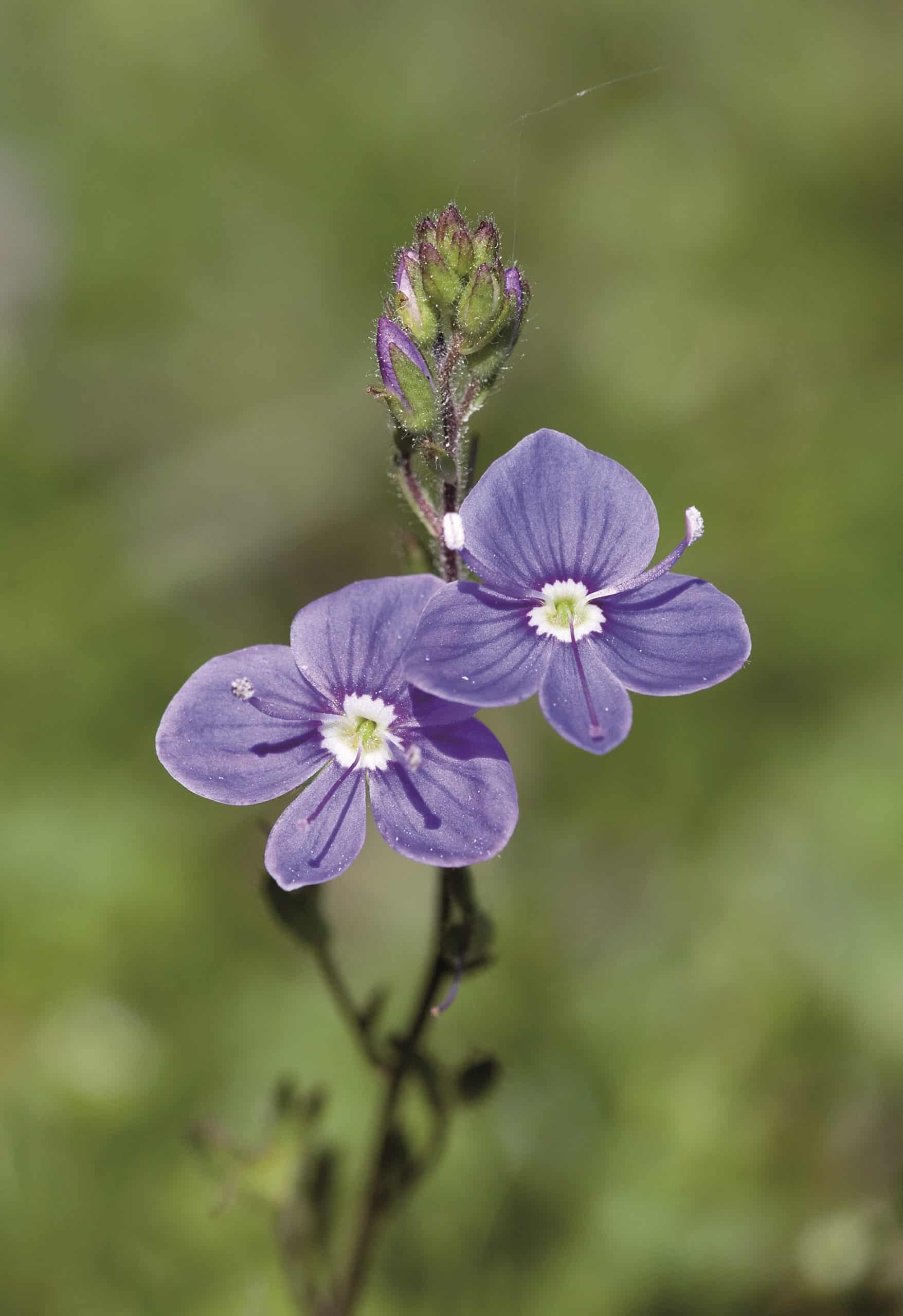
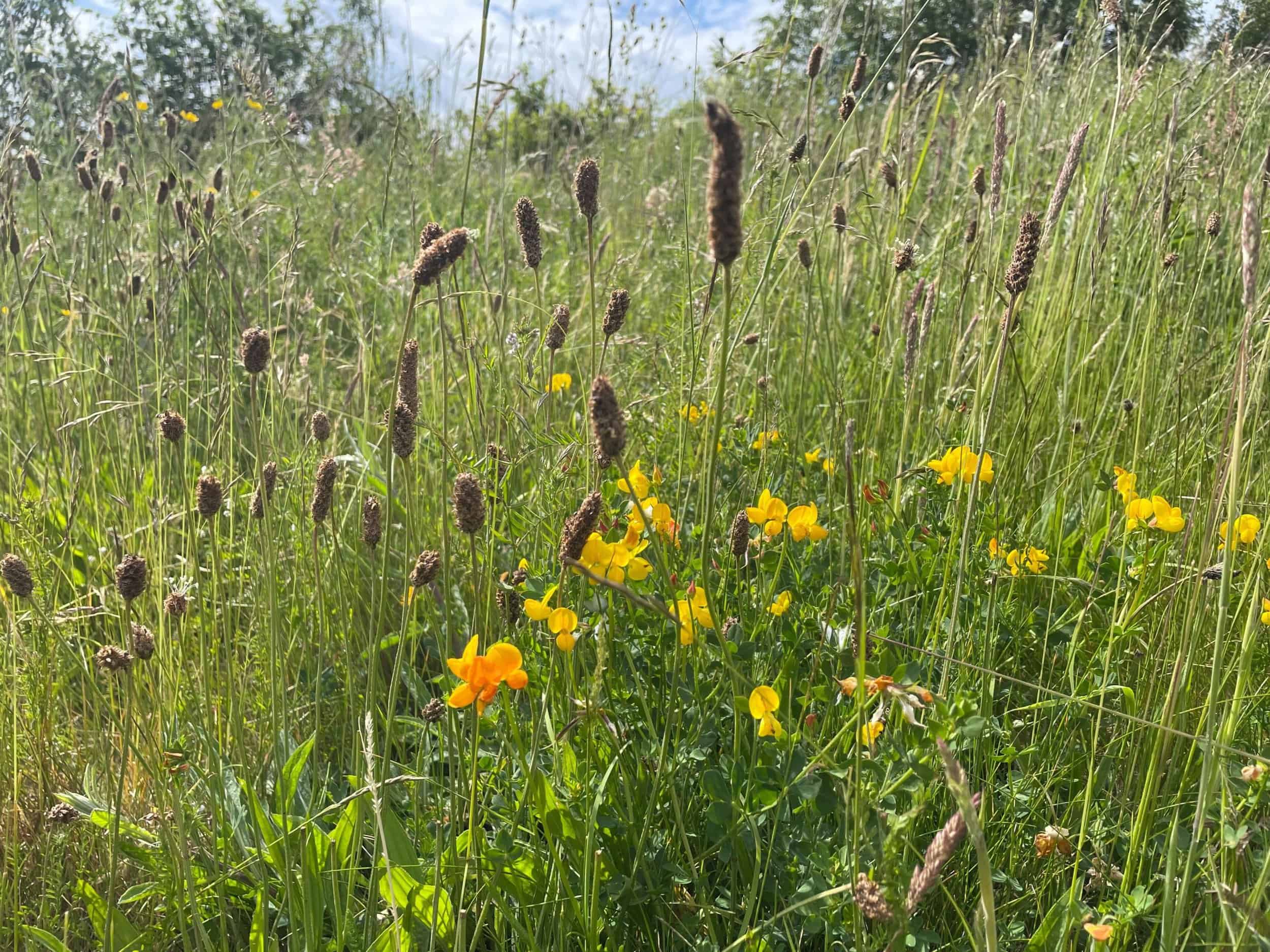
Read More
This lively, informative, hands-on course will offer you a relaxed introduction to the world of botany. With plenty of plant material to pull apart and look at in the classroom, you will investigate the vegetative (leaves, stems, roots) and reproductive (flowers, fruits and seeds) parts of flowering plants, and start to understand the roles that they perform. Moving outside, you will look at the plants growing around the course venue – using them for further study of these features. We will consider the domination of the angiosperms (flowering plants) in the broader context of the whole plant kingdom.
By the end of the course, you will be able to:
- Describe the challenges that faced plants as they colonised the land.
- Distinguish angiosperms from other plant groups.
- Recognise and name the most common vegetative features of flowering plants needed for using botanical keys.
- Describe the main functions of leaves, stems and roots.
- Understand and explain the functions of the parts of a flower.
- Describe the processes of pollination and fertilisation.
- Understand (at a basic level) how angiosperms reproduce.
- Recognise and name different categories of fruit.
- Share this knowledge with friends, family and fellow volunteers.
Who Should Attend? – The course is for anyone interested in improving their ability to identify and understand the ecology of British wildflowers. This may include nature enthusiasts, students, early career ecologists, citizen scientists, volunteer surveyors, gardeners, and more!
Knowledge Level – Beginner. Level descriptors can be found on the following web-page: Framework and Course Level Descriptors
Prior Knowledge – A basic understanding of plants would be beneficial but no specific experience is needed for this course – just a willingness to explore and learn.
PLEASE NOTE the course fee is for tuition only. There is no accommodation provided with this course.
Bookings will close if course capacity is reached.
Please email [email protected] if you have any questions.
About the Tutor
This course is delivered by more than one expert tutor. Your tutor will depend on the location of the course you book.
Dr Karen van Oostrum
Karen has a love of plants and the environment, and enjoys sharing this with others, through courses and guided walks.A Biology graduate of Oxford University with a Ph. D. in wheat genetics, Karen was Head of Education at Cambridge University Botanic Garden from 2006 – 2012 and has worked with people of many ages from diverse backgrounds.
Self-employed since 2013, Karen writes and delivers introductory courses in Botany, hosts school visits at her local Field Studies Council Centre, and supports the teaching of plant science in Primary Schools through INSET and pupil workshops. Karen volunteers with her local environment group in the Chilterns, leading guided walks and overseeing work parties.
Dan Ryan
Dan is passionate about natural history and sharing that knowledge with others, especially if it involves crawling around looking for interesting plants and fungi. He is a very experienced teacher of plant sciences, ecology and sustainability up to Masters level and is a popular natural history walk and course leader. Dan is active in Cornwall’s biological recording community, where his main interests lie in chasing obscure wildflowers around the coast and surveying grassland fungi. Dan has worked around plants throughout his career which began at Tregothnan Botanic Garden, he plays an active role in nature conservation and advocacy in Cornwall and is Head of Higher Education at the Eden Project.
Example Timetable
Timings of this course vary between locations, so please carefully check the times on the course run (the section where you can add the course to your basket towards the bottom of this page).
There will be a lunch break during the day, the length of the break will vary depending on course location. Lunch is not included so please bring your own food. Refreshments (tea and coffee) will be provided.
What's Included
The course has been carefully created by expert tutors and educators to help you continue to build and develop your knowledge and apply it within the field surrounded by like-minded individuals.
The course includes:
- Classroom learning covering the theory of the species
- Field excursions to apply new knowledge
- Expert tuition for which the Field Studies Council is renowned
- Clear objectives and progression
- Refreshments (tea and coffee)
You can rest assured that the absolute best content from an expert in environmental education will be provided. In choosing a Field Studies Council course, you will be joining thousands of people who learn with us each year.
Bursaries and Subsidies
Student Discount
This course is eligible for a student discount. If you are a current student, please use discount code BioStudent20 at checkout for 20% off all Biodiversity courses.
Natural History Bursaries
There are a number of natural history bursaries available to help with the cost of your course. To find out if you and your chosen course are eligible, read more here.
Before You Attend
What to Bring:
- Notebook and pencil
- Old jam jar or vase and plastic tubs to put plant material in
- Camera to capture images
- Lunch and refreshments
- Sensible footwear and clothing for being outdoors
If you have them:
- x10 hand lens
- Your own reference book(s) - if you already own a copy of the Rose Wildflower Key or Streeter’s Collins Wildflower Guide please bring these along, but no need to purchase in advance
Recommended Literature
When you book this course, you will receive a discount code for the Field Studies Council recommended guides below.
There will be a member of staff with first aid training and access to a first aid kit on site. If you have special medical or access requirements, please let us know as soon as possible so we can plan the course.
Opportunities to attend this course
-
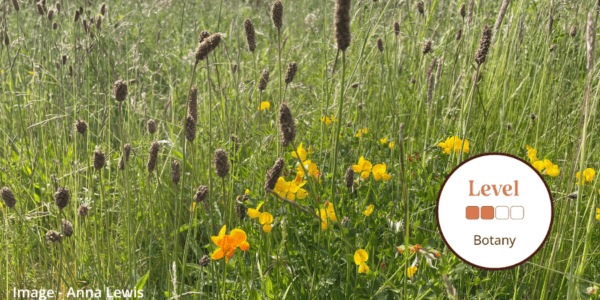
Sat 11, May 2024 10:00 - Sun 12, May 2024 16:30
The Centre is unable to offer accommodation with this course, please book local accommodation if you require overnight stays and ensure you take out the appropriate insurance. Directions for Hill End Outdoor Education Centre can be found here.
-

Sat 18, May 2024 10:00 - Sun 19, May 2024 16:30
The centre is unable to offer accommodation with this course, please book local accommodation if you require overnight stays and ensure you take out the appropriate insurance.
Sorry this course is out of stock
-

Sat 22, June 2024 10:00 - Sun 23, June 2024 16:30
The centre is unable to offer accommodation with this course, please book local accommodation if you require overnight stays and ensure you take out the appropriate insurance.
-

Sat 06, July 2024 10:00 - Sun 07, July 2024 17:00
This course will be held in the Room With a View at the Growing Point Nursery at the Eden Project. Growing Point is located in Eden's Outer Estate. From the main North gate entrance, follow the main road, crossing over the first set of speed-bumps/gates and Growing Point is the first turning on your left. If driving in from the East Gate, follow the directions to the YHA, continue up the hill and take the next turn on your right. The Venue is unable to offer accommodation with this course, please book local accommodation if you require overnight stays and ensure you take out the appropriate insurance.
No current dates for this course? Click here to view all the upcoming Natural History courses.
Progress Your Learning
This is a training course from the Field Studies Council, including online course materials, expert tuition and a flexible learning style. After attending this course, you may like to progress your learning with further relevant courses or branch out into other areas of natural history. The Field Studies Council offers both online and in person courses, so you can choose the learning style that suits you best.
The course gives you the opportunity to immerse yourself in a new subject and acquire novel skills. Our online portal gives you time to study at your own pace and fit the lessons around your own schedule.
If you have any questions about our courses please check our Frequently Asked Questions or email [email protected].
Group Bookings Made Easy
If you have a group of 10 or more individuals wanting to complete one of our courses, our team are available to discuss your options – from discounts to private team courses. Click here to find out more!
You can rest assured that the absolute best content from an expert in environmental education will be at your fingertips. In choosing a Field Studies Council course, you will be joining thousands of people who learn with us each year.

